How do you really define proper exploration? The older I get, the more difficult it gets. Legendary organisations like the Explorers Club and The Royal Geographical Society have their guidelines, but in the case of the RGS, they have lowered their standards, I think, to accommodate more members and Fellows to get more income. Which might be needed because the members and Fellows are aging and new blood is needed. Relatively new and fresh is the Explorers Web, but they concentrate mainly on climbers, pole skiers and rowers. So I guess it is the mind of the doer, to define. For me personally there´s a difference between sporting adventures, like going to the pole or climbing Everest, and somebody like Julian Monroe Fishers setting off on a 5 year journey through Africa. Recently I read an interesting post as regards to the subject by an interesting fella, Daniel Fox, and I am happy to share it would you readers!
The Last Explorers
by
Daniel Fox
“That is the exploration that awaits you! Not mapping stars and studying nebula, but charting the unknown possibilities of existence.” Leonard “Spock” Nimoy
A new show on BBC has left me with a sour feeling. It is not really that the show is bad, or that the host is annoying. It is not that the topic is stupid nor that the episodes are not interesting. It is rather the title that is raising a red flag in my unconscious explorer mind. Neil Oliver’s new show “The Last Explorers” tags itself as “a series on the golden age of exploration, charting the routes of contact that drew together the farthest reaches of the world”. They could have called the show “The First Explorers”, “The Great Explorers”, or simply “The Golden Age of Exploration”. Instead they chose to epitomize these men as the last of their kind, placing them in the same category as any other extinct species. Unfortunately, and sadly, that knot in my stomach, that needle in my brain, is there because I sadly agree with this statement.
A little bit more than a year ago, I attended the Royal Geographical Society’s Explore weekend and was enchanted by the speech of Arita Baaijens. As she described her journey through the desert with its violent sand storms, she concluded with one of the most sincere and refreshing types of advice I had heard in a very long time:
“…there’s a tendency to cover up expeditions and journeys with noble aims. Either to attract sponsors or to give the expedition a sexy or good feel. But most first timers GO without knowing why they want to follow the Amazon River or reach the North Pole, or cross the biggest desert. It’s an inner drive, and it’s quite a normal thing to do – that is why there are so many legends, myths, fairy tales about the Journey of the Hero (Joseph Campbell). Young people want to test their strength, find out who they are, and what their place in he world is. Those journeys are directed towards your inner world, about WHO am I and WHAT is my place in the world, see Tomson’s words. And when you have learned more about yourself, your motives, your prejudices and opinions, your place in the world, you are better equipped for another type of expedition, journeys of discovery directed towards the outside world, characterized by WHY & HOW. “
I think what “The Last Explorers” means is that the “spirit of exploration” has changed tremendously in the last decades, and for some, including myself, it is more of a loss than a gain. And nothing could be more evident to support this fact, than what is happening at the Explorers Club in New York at this moment.
During my first visit to this historical club – with legendary members such as Roald Amundsen, Sir Edmund Hillary, and Neil Armstrong, I was struck with disbelief when at the entrance to the main saloon, I saw a scale model of the ultra luxurious cruise ship “The World”. Was I at the right place? In the right building? Or had I mistakenly entered an Upper East Side travel agency for wealthy retirees? The latest events that have unfolded in the media seem to be zeroing in precisely on this existential issue. What is exploration? On one side are the “New School Explorers”, to whom exploration is a blend of commercial adventures surrounded by rich people that can pay their way. R.L. (his name is obviously not revealed) precisely embodies this new genre. He is a hedge fund manager from London who made good money and now can afford to “collect“ exploration badges, making him an “explorer”. The man, who is more at home in Michelin star restaurants then in a bivouac, pays ridiculous sums to be taken into the wilderness by experts, then claiming the credit for himself. His latest adventure was in Antarctica, where he dished out close to £100,000 to get up and supposedly baptized an unnamed peak (needless to say, with a lot of help). His brashness goes so far, that he now gives talks to children on how to be an explorer! For this type of person, the Club is doing really well, befitting these “modern” times. The Club’s supporters defend their position by illustrating how the revenues have increased by adding new members like him – money much needed to renovate the crumbling building, suitably located between Madison and Park streets, on the chic Upper East Side, rather than funding new, real adventures.
On the other side are the “Old School Explorers”, who care more about the “Spirit of Exploration” – It is not what you do, but how and why you do it. The debate is surprisingly similar to what went on in the wine industry – old world wines which were generally subtle and complex, versus the new world wines, usually described as bold, sweet, simple, and with great emphasis on the packaging. At the end of the line, the core of the issue, whether it is exploration or food, is quite the same: Quality versus Quantity. Local or Global? Small or Big? Does exploration have a “Spirit” or is it an industry? And if it is an industry, then how can we commercialize it, make it grow and become more profitable? Herein lies the core of the question: Is bigger really better? – Which brings me back to Arita‘s statement.
Present day exploration could be divided into three categories:
A rich pastime
A personal ego-trip – the desire to break a record or make an environmental statement
A vague, virtual idea of discovering the planet from behind ones’ computer (see Nature is not in your computer).
It is no longer about wanting to disconnect from overbearing city-life to experience the unknown. It is no more about wanting to escape the crazy modern world to seek true, pristine wilderness. It is no more about a journey to discovering your inner self. What it is today, is a business! The magic of new discoveries has given place to self-centered claims of saving the planet.
I explore because for me, the world makes more sense out there, than here. I explore because nature humbles me. I explore because it reminds me that there is something bigger in life, something sacred and mysterious. I explore because it makes me a better person. And, I really wish we would hear the same narrative from other explorers more often. I just hope I am not part of a dying species!
“The real voyage of discovery consists not in seeking new landscapes, but in having new eyes.” Marcel Proust
The Last Explorers 2
Thanks to James Cameron’s recent extraordinary journey to the bottom of the ocean, and other personal events, I felt the need to write a second part to my previous post “The Last Explorers”.
Although I could have used a series of other excuses to justify continuing explaining my point about the declining of the spirit of exploration, it was a report on the BBC’s website that got me all itchy.
Journalist Rebecca Morell, on site in Guam, was doing an update right after Cameron had came back from the deepest place on Earth. The short interview featured on the web was so unprofessional, I asked myself if I had mistakenly switched to Fox News.
The other voice in the clip, a man at the BBC studio, started by saying: “This is supposed to be a bit of a race involving a team from Google and one sponsored by Richard Branson – but it is over before it really begun hasn’t it?”
Did anyone brief this person before he went on air? The race to reach the bottom of the Mariana Trench has been on for years – the last five mostly in secrecy. Tens of millions have been spent and three other teams have planned expeditions this year alone, DOER Marine, Virgin Oceanic and Triton Submarines. The race is not over before it begun, the race has been won!
Morell continued, cordially, informing him that it had indeed been a race with a winner. She then told how Cameron wanted to inspire a new era of ocean exploration. The man reciprocated: “It is a puzzling point though, if it has been done before because of a US navy team which reached the bottom of the Mariana trench 50 years ago, to what extent is it a pioneering dive that he has just completed ?”.
Seriously?
If that was not enough, they concluded the segment by pointing out that: “Some scientists question whether you actually need to have humans at the bottom to explore when you can do things like drop down underwater robots”.
This should have been a “walking on the moon” moment with the entire world (and most importantly the entire exploration community) celebrating. If this is true that some scientists really question the need to “Physically” explore the unknown, shame on them! Why go to Mars if we can send a robot? Why meet and talk to people in the flesh if you can do it online?
The other surprising fact was the almost total absence of two of the most legendary exploration clubs, the Royal Geographical Society and the Explorers Club. Founded in 1830, the RGS enshrines such famous names as Livingstone, Stanley, Scott, Shackleton, Hunt and Hillary. There was not a word about the expedition from them, not on their twitter site, nor their News site. The Explorers Club has members including the first man to reach the North and South Pole, the first to climb the summit of Mount Everest, and the first to step on the surface of the moon. Captain Don Walsh, former Honorary Club President, who was part of the first manned expedition to the bottom of the Trench was actually onboard with Cameron for this historical feat. Sadly, the Club only tweeted little bits about this groundbreaking event, and nothing was written on their News/Bog site. A pity and shame for these institutions who have the responsibility of carrying on the flame of exploration.
As many of you know, I am in the process of putting together a large expedition, a 6-year around the world sailing expedition, called E.P.I.C. Aboard two 35m aluminum hull sailing boats, with retractable keels, we will visit over 250 of the remotest islands in the world. Doing documentary film making, photography, conservation campaigns, and science projects, this endeavor is reminiscent of the Golden Age of maritime exploration. The budget is obviously huge and the challenges seemingly impossible. The reactions I usually get could be summed up in three words: “Really? Why? Good Luck!” No worries, I do get my share of encouragements, but last week I received a couple of comments that reminded me why I was sacrificing everything to make this project of mine happen.
The first one came from Prince Michael of Kent, whom I had the honor to meet in his office at Kensington Palace in London. Listening carefully to my presentation, his eyes opened up and I could see a glare in them. He looked at me and said: ”Finally! It is so refreshing to see that the real spirit of exploration, the one I grew up with, these big dreams of exploring the world, of not being afraid of leaving the comfort zone behind, do still exist. I am glad to know that the flame is not extinguished and is being carried on. Thank you”
The second comment came from Bill Vartorella, who is a fellow of both the Explorers Club and the Royal Geographical Society, and a member of the Overseas Press Club and Rotary. In his email, Mr. Vartorella said: “This is a gutsy expedition that cuts to the heart of grand exploration tradition (something abandoned by some organizations, as per vote of membership several years ago, re: grants), while embracing high-tech, with the ocean as central theme/connective tissue to past and present. The intro and feel of your 30-page brochure are riveting. This is a great expedition!”
It is always difficult to explain why I want to commit the next 10 years to a project that seems impossible. It is hard to find people that “get it”! When I see projects like Cameron’s journey to the ocean depths and when I get comments like those two last week, I am reminded that I am on the right track and that I don’t always have to explain my reasons. I just have to listen to that little voice inside of me that tells me to keep on going, and to keep pushing the envelope. One day, when I am on the boat, sailing the oceans like the great explorers of yesterday, all this hard work, all these days where I was left without a single penny, all this hardship, and all these days where I felt like abandoning the project, yet kept on going, to the disbelief of many, all this, will have been worth it. Because that is what these grand-scale expeditions are for, to remind us that everything is possible, that our dreams are never too big.
Daniel Fox is a member of the Explorers Club in New York, of the Royal Geographical Society in London, an ETE (Education Through Exploration) Ambassador, a Blue Project Ambassador and a Planet Explore Visionary (a The North Face initiative that promotes the outdoors). He is currently planning a 6-year around-the-world sailing expedition called “The E.P.I.C. Expedition”. Besides writing for the Wild Image Project, Daniel also writes for Extreme & Polar Islands Conservation.
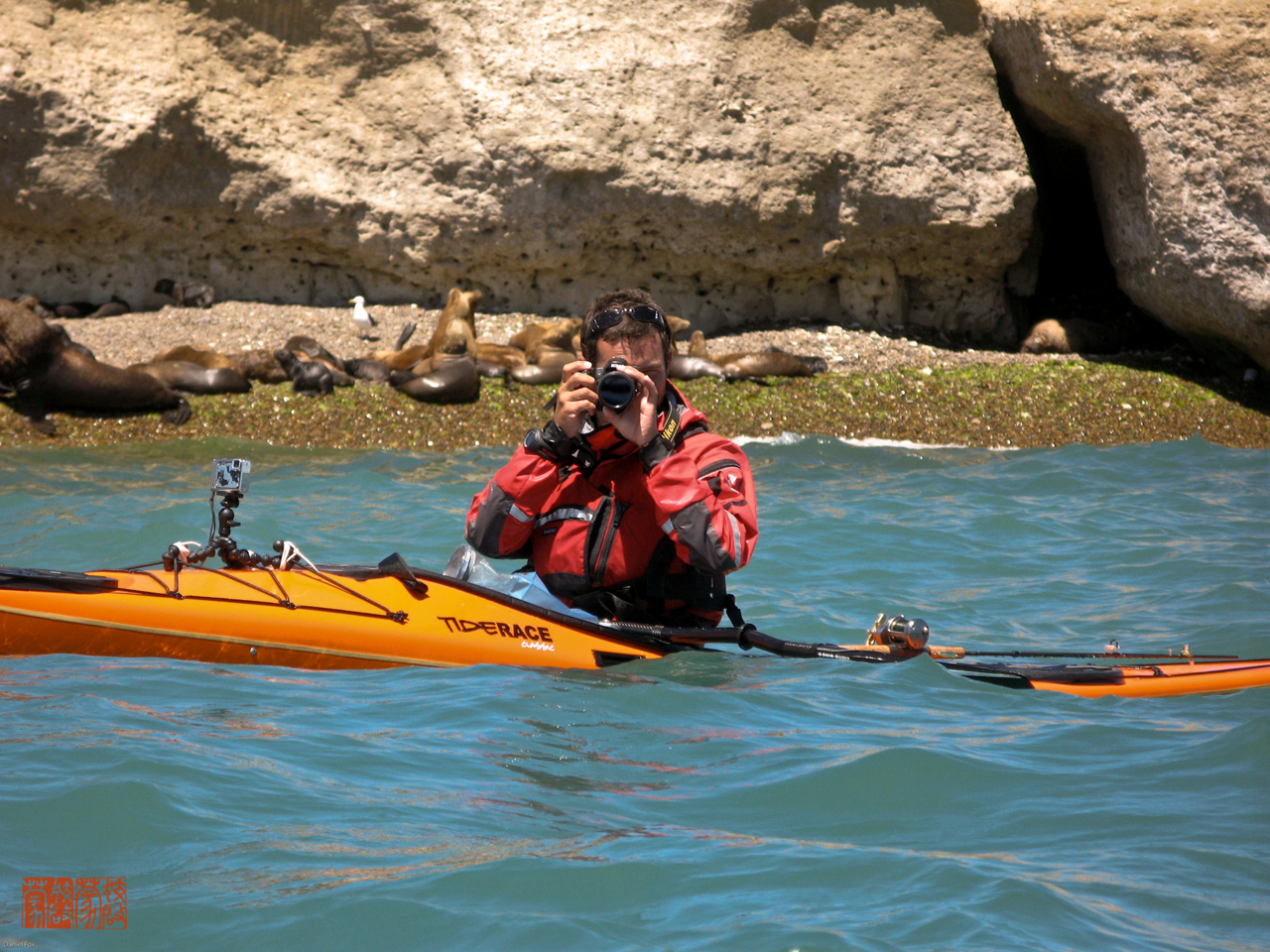
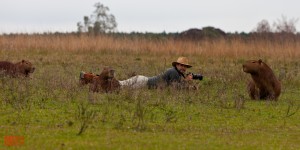
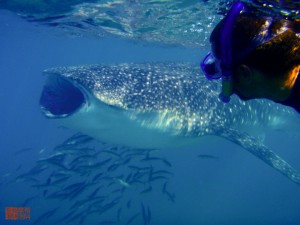
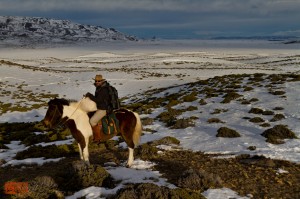
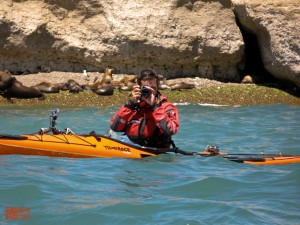


Glad someone else was thinking this, though I enjoyed the series and hold those in the programs with the upmost respect. But I agree that the story is not over yet and though those people deserve the respect for the great that they did there are lots more out there that few will have heard of.
This paragraph was pure factual poetry, and words that sum up the personal part of the experience perfectly. I assure you from the people I have met that you are not part of the dying species but part of a legacy.
“I explore because for me, the world makes more sense out there, than here. I explore because nature humbles me. I explore because it reminds me that there is something bigger in life, something sacred and mysterious. I explore because it makes me a better person. And, I really wish we would hear the same narrative from other explorers more often. I just hope I am not part of a dying species!”
Daniel, Prince Michael of Kent was right.
He’s had a lot of involvement with expeditions over the years and knows what he’s talking about.
As for those who don’t ‘get it’, in my view they are simply revealing their envy. Small people who can’t dream a dream and so simply resort to begrudging you your greatness. Reversing polarity, perhaps view their emotional miserliness as evidence that your dream is truly inspirational. All the more reason for doing it. And all strength to your bow. If you’re tracking anywhere near Oz, call me if you need assistance.
Dear Earl, Sim, Thank you very much for your comments!
When you look closely at history, many of the issues you discuss were around when both the RGS and the Explorers Club were formed, they were just under different hats..but for today you are spot on!..good luck with the EPIC Expedition. As the world moves forward, the approach/execution of exploration sometimes looks different..but you are are a “classic”.
As a Chartered Geographer I tentatively atentded the second day of training at the RGS, wondering if I would be out of my depth! Having played around with Google Earth navigating the streets of New York and London and flying to different locations where I have been on holiday I was wondering if I would be able to keep up with the technologies of GPS systems, GE Graph and digital cameras in Google Earth.I was quickly comforted to know that some others’ learning was in the same place as mine and that Jamie who is a fantastic teacher- clear, firm fair and patient- was able to consolidate our knowledge and move us on quickly.During the day I learned a lot.. an INSET that was both informative and practical hands on allowing us to wander in Hyde Park and test our skills before presenting back to the group.WOW.. what a lot I learned embedding graphs, photos and video as well as thinking about the applications that it could be used for. I left enthused and and ready to take on the Google Maps agenda. At home I played with the tools and skills that we learned before going equipped with a digital camera and GPS to Juniper Hall the next day to study tiver sites with the Year 12 AS Level Geographer from school. Collecting discharge data along the River Collingbourne we then went back to put data into EXCEL before dropping it into Google Earth Graphs WOW again the River’s course showed visually the changes in velocity, width, depth, etc .and the Sixth Form fully understood the work.All that I had learned we practised the next day although I have to say the Sixth Form more skilfully than me.The course, which I highly recommend, has really got me thinking about how the students at school can use Google Earth in their learning and how we can incorporate it effectively into our Schemes of Work.. school grounds, coastlines, fantastic places, crime hotspots, .Thanks Jamie and the RGS for a wonderful day out last Wednesday. I will contact you soon about the Brighton and Hove Geography Network!
Dear Don McIntyre, thank you very much for your comment. Greatly appreciate it!